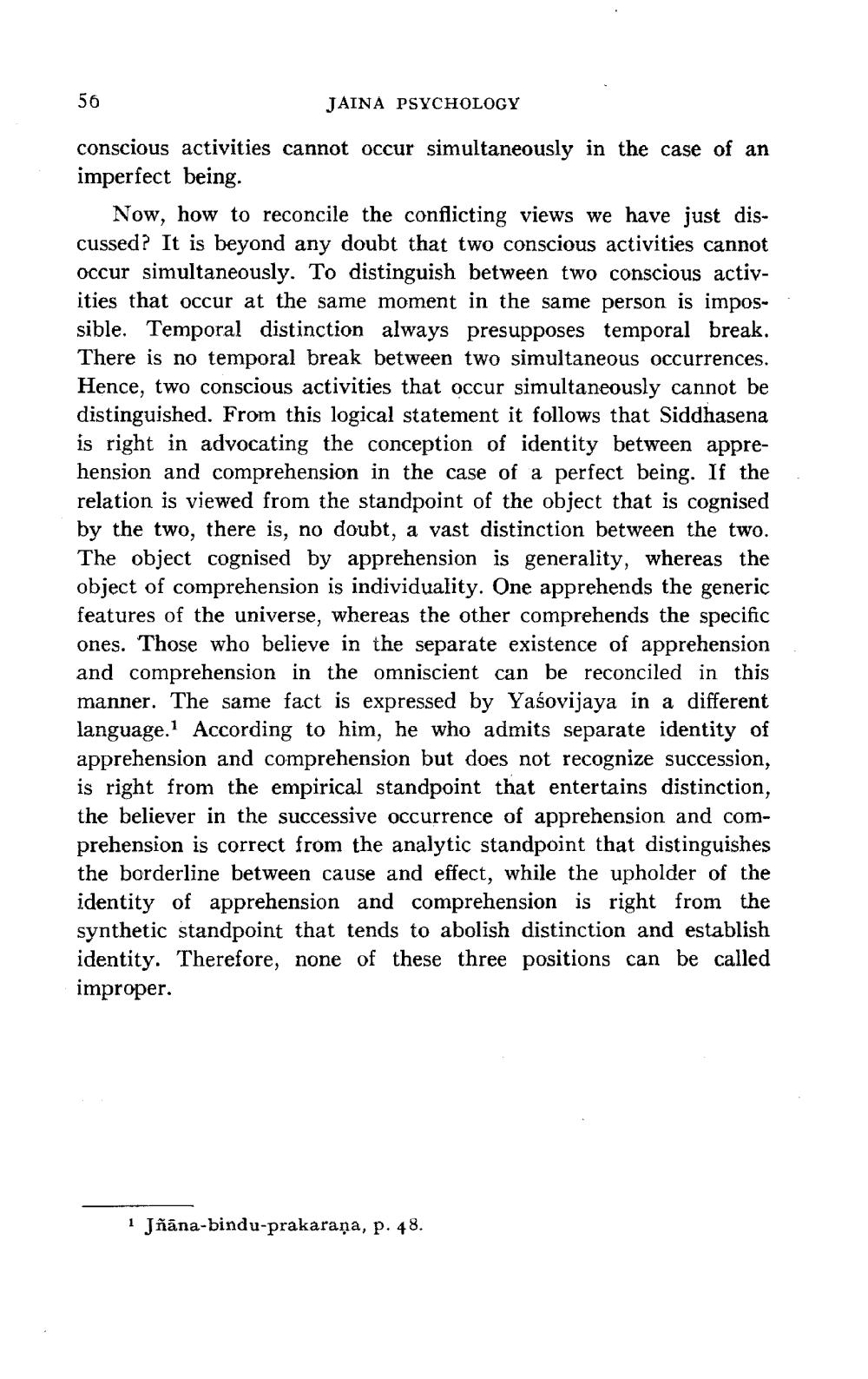________________
56
JAINA PSYCHOLOGY
conscious activities cannot occur simultaneously in the case of an imperfect being.
Now, how to reconcile the conflicting views we have just discussed? It is beyond any doubt that two conscious activities cannot occur simultaneously. To distinguish between two conscious activities that occur at the same moment in the same person is impossible. Temporal distinction always presupposes temporal break. There is no temporal break between two simultaneous occurrences. Hence, two conscious activities that occur simultaneously cannot be distinguished. From this logical statement it follows that Siddhasena is right in advocating the conception of identity between apprehension and comprehension in the case of a perfect being. If the relation is viewed from the standpoint of the object that is cognised by the two, there is, no doubt, a vast distinction between the two. The object cognised by apprehension is generality, whereas the object of comprehension is individuality. One apprehends the generic features of the universe, whereas the other comprehends the specific ones. Those who believe in the separate existence of apprehension and comprehension in the omniscient can be reconciled in this manner. The same fact is expressed by Yaśovijaya in a different language.1 According to him, he who admits separate identity of apprehension and comprehension but does not recognize succession, is right from the empirical standpoint that entertains distinction, the believer in the successive occurrence of apprehension and comprehension is correct from the analytic standpoint that distinguishes the borderline between cause and effect, while the upholder of the identity of apprehension and comprehension is right from the synthetic standpoint that tends to abolish distinction and establish identity. Therefore, none of these three positions can be called improper.
1 Jñana-bindu-prakaraṇa, p. 48.




